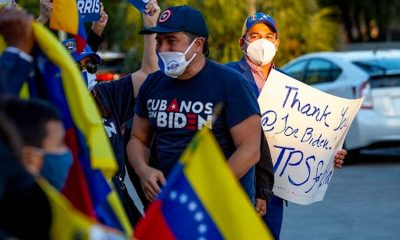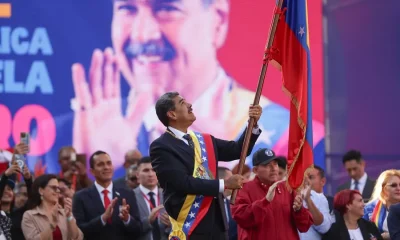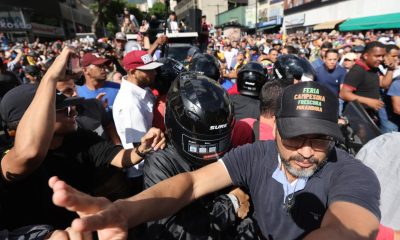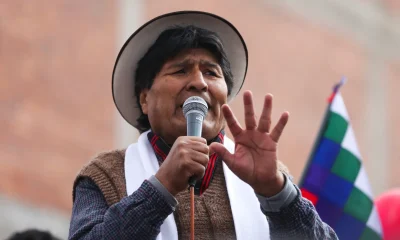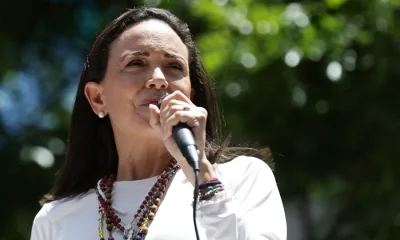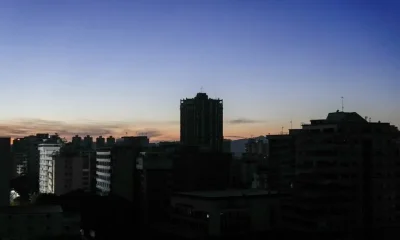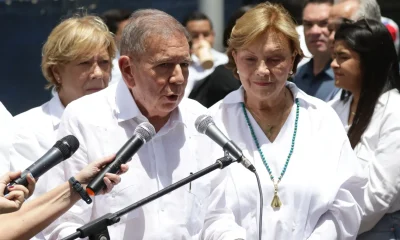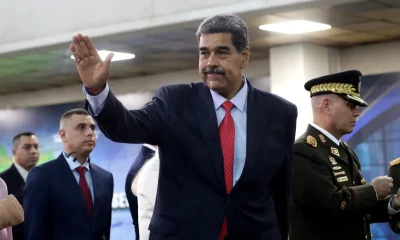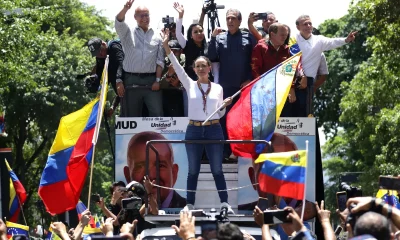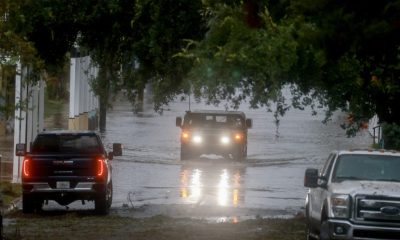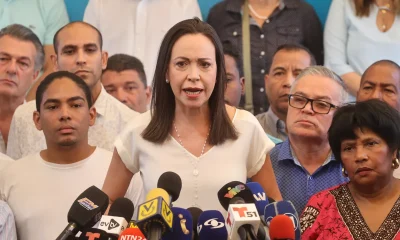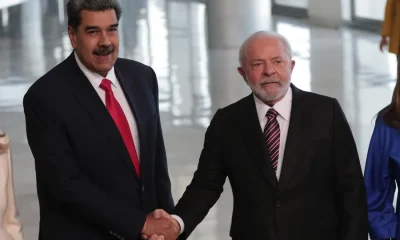International
Venezuela and Colombia face diplomatic tensions over Maduro’s re-election
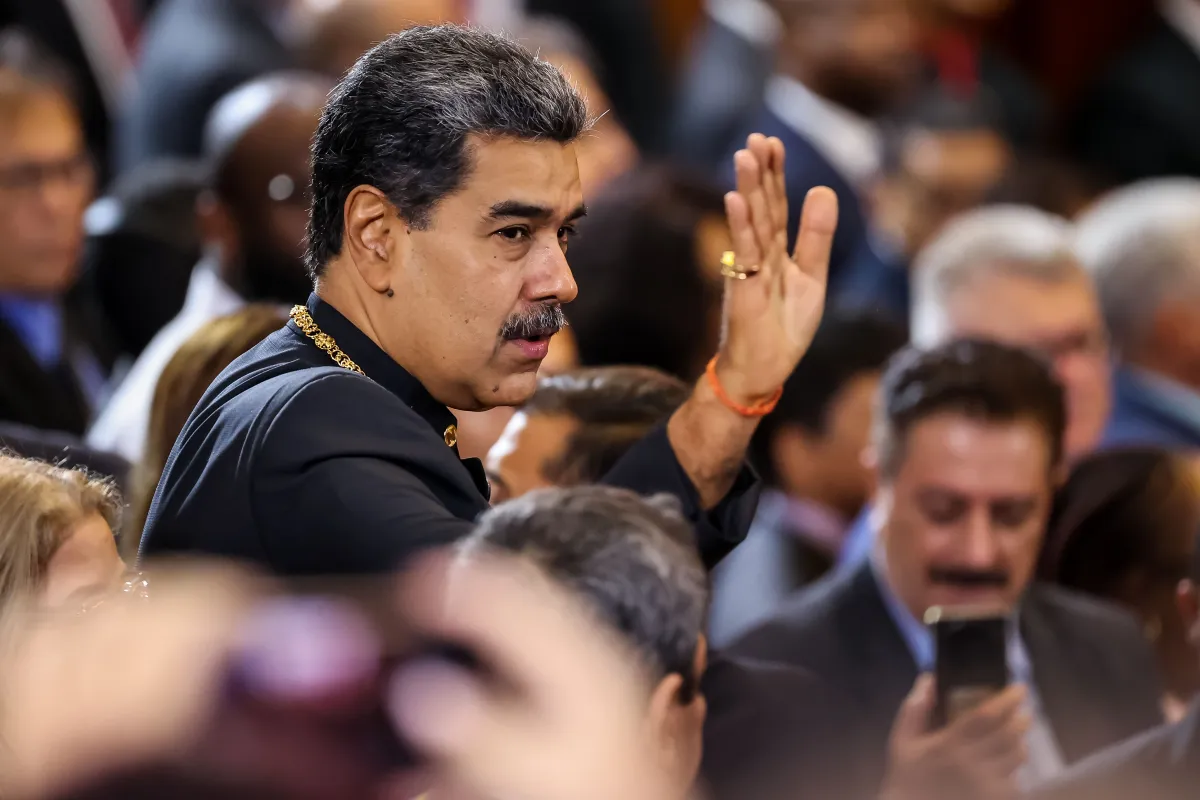
Diplomatic relations between Venezuela and Colombia, as well as with Brazil, have once again entered a delicate phase following recent statements regarding President Nicolás Maduro’s re-election. The Venezuelan government has strongly criticized the stance of these countries, which have been regarded as Caracas’s allies.
The Venezuelan government responded sharply to Colombian Foreign Minister Luis Gilberto Murillo, after he reiterated that President Gustavo Petro’s administration will not recognize a new term for Nicolás Maduro without credible evidence supporting his contentious re-election.
Colombian Foreign Minister Murillo stated on Wednesday that, until detailed records and disaggregated voting data are released, Colombia’s position will remain to withhold legitimacy from the results announced by Venezuela’s National Electoral Council (CNE), which is controlled by the Chavista government.
Venezuelan Foreign Minister Yván Gil reacted to these statements, calling them a “backstabbing attack.” In a message shared via Telegram, Gil accused his Colombian counterpart of yielding to pressure from “the far-right” and the United States, warning that Venezuela will respond “in due time” to what it considers “constant interference” in its internal affairs.
International
Arsenal stun Real Madrid at the Bernabéu to reach Champions League semifinals

Arsenal enjoyed a “historic night” on Wednesday after defeating Real Madrid 2-1 at the Santiago Bernabéu, knocking them out of the Champions League quarterfinals, midfielder Declan Rice said.
“It’s such a special night for this club, a historic night for this club,” said Rice, who scored twice in the first leg in London, speaking to TNT Sports.
The English international was named Man of the Match in both legs — the 3-0 win in London and the second leg in Madrid.
“It’s amazing. I knew we were on an upward trajectory and we’ve done incredibly well in this competition. We deserve it and we have full confidence in our coach. Reaching the semifinals is unbelievable,” Rice added.
International
DeSantis’ immigration crackdown sparks alarm in Venezuelan Communities in Doral
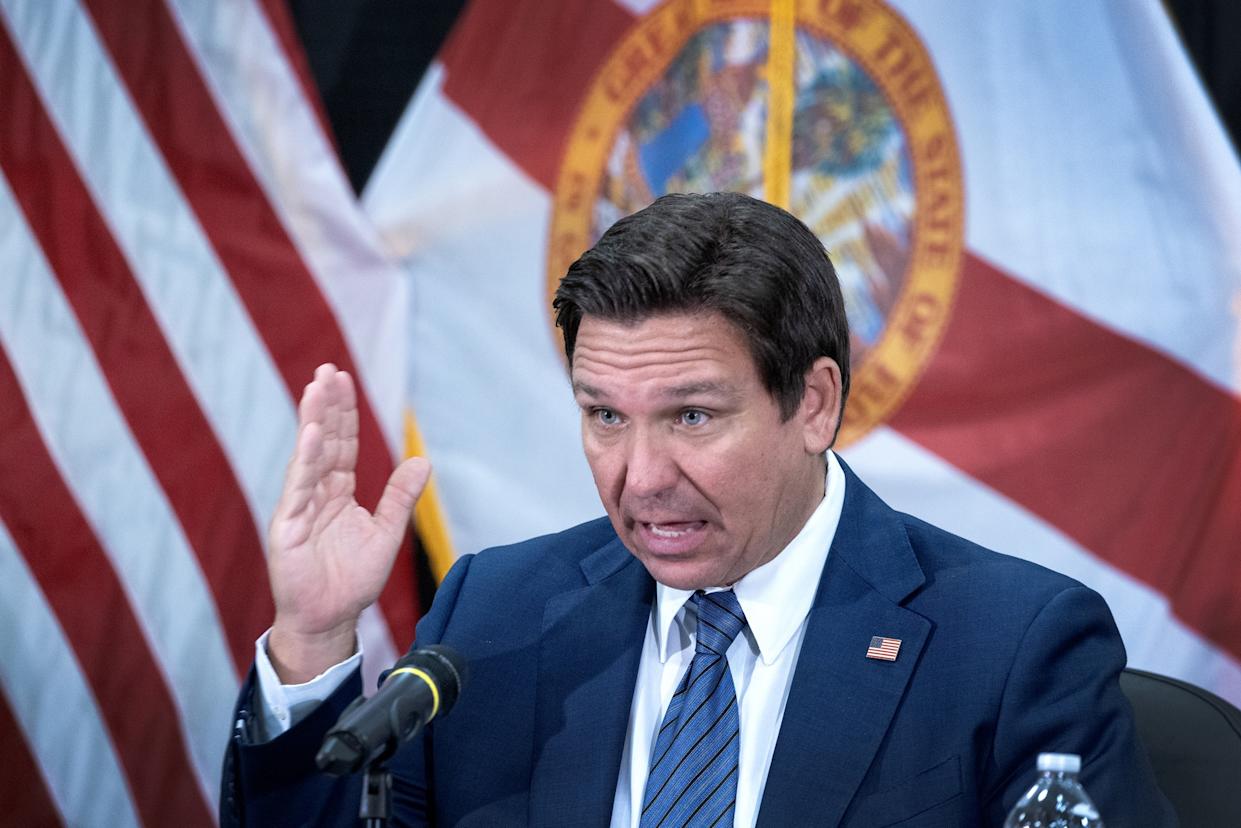
Florida, the U.S. state with the third-largest immigrant population, has become the most aggressive in targeting undocumented immigrants, largely due to pressure from Governor Ron DeSantis. This shift has led Latino-majority cities like Orlando and Doral to authorize their police forces to assist in immigration enforcement.
In Doral — part of the greater Miami area where 70.7% of residents are immigrants and 48% are of Venezuelan origin — the City Council is expected to approve a measure this Wednesday allowing local police to collaborate with Immigration and Customs Enforcement (ICE), despite opposition from neighborhood groups and human rights activists.
“It’s yet another betrayal,” said Susana Ríos, a 57-year-old Venezuelan woman currently under Temporary Protected Status (TPS), whose extension was denied by the White House and is now being challenged in court.
Meanwhile, José González, a 21-year-old immigrant, said he feels “abandoned.” He can’t stop thinking about the images of Venezuelans deported to El Salvador without due process. “We’re all in danger,” he warned.
International
Bogotá residents line up for yellow fever vaccine amid national alert
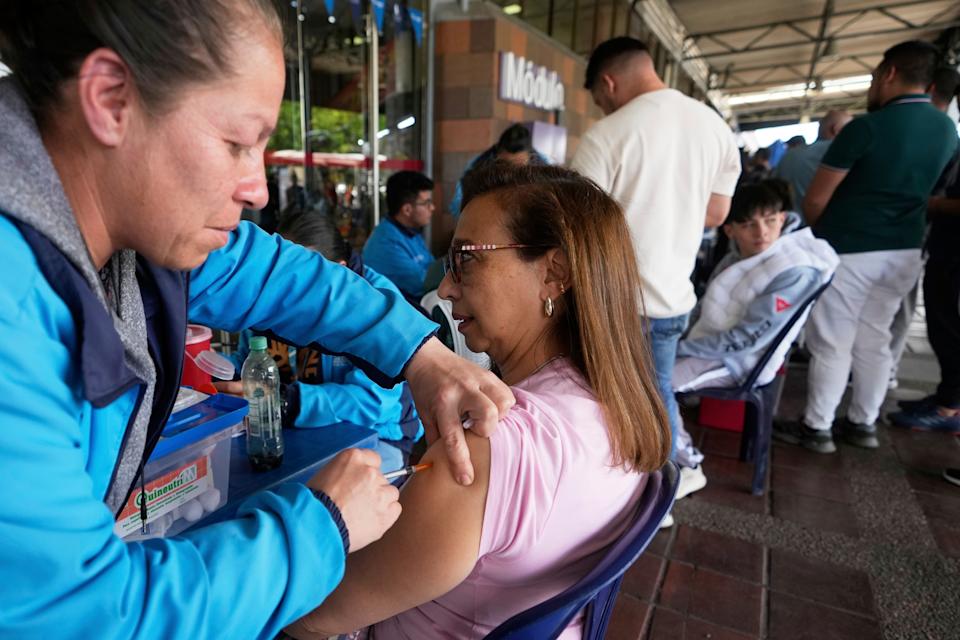
David Suárez went to a public health center in Bogotá on Wednesday to get vaccinated against yellow fever. It wasn’t originally in his plans, but he responded to a call made just hours earlier by President Gustavo Petro, who announced he will declare a health and economic emergency due to a new outbreak of the disease that has already left more than 30 people dead, mostly in the central-western region of the country.
“I got vaccinated for two reasons: first, for my own health because I’m traveling, and second, for a social reason — simply to follow the president’s guidance and be aware that this is a problem for all of us,” said Suárez, a 39-year-old teacher, to The Associated Press.
Like Suárez, dozens of people were waiting in line for the vaccine at Bogotá’s main intercity bus terminal, a key transportation hub especially crowded during travel seasons like Holy Week.
The teacher is traveling with his family to the department of Huila, which has activated a contingency plan due to its proximity to Tolima — the epicenter of the yellow fever outbreak — where a state of public calamity has been declared.
-

 International4 days ago
International4 days agoNightclub Collapse in Dominican Republic Claims 226 Lives
-

 Central America5 days ago
Central America5 days agoSpanish Ex-Congresswoman Calls for ‘Bukele-Style’ Security Policies in Europe
-

 International4 days ago
International4 days agoVenezuela accuses Guyana of “warlike intentions” after UK defense deal
-
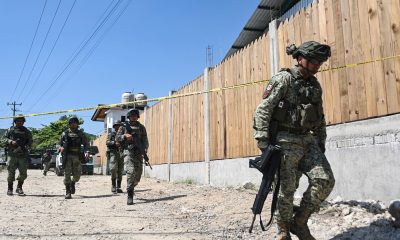
 International5 days ago
International5 days agoTrump Authorizes Military to Take Control of Federal Land Along U.S.-Mexico Border
-

 Central America2 days ago
Central America2 days agoHonduran Police Offer $135K for Tips Leading to the Arrest of Romeo Vásquez
-

 Central America1 day ago
Central America1 day agoPetro questions Ecuador’s vote, cites reports of military control and arrests
-

 International2 days ago
International2 days agoMPV Denounces Electoral Blockade as Secretary-General is Disqualified for May Elections
-

 International2 days ago
International2 days agoMaduro Plans Major Workers’ March on May 1st to Defend Venezuela’s Freedom
-

 International8 hours ago
International8 hours agoArsenal stun Real Madrid at the Bernabéu to reach Champions League semifinals
-

 International9 hours ago
International9 hours agoBogotá residents line up for yellow fever vaccine amid national alert
-

 International1 day ago
International1 day agoColombia: Search continues for missing limb of italian scientist found dismembered
-

 International9 hours ago
International9 hours agoMexico refuses to restore ties with Ecuador while Noboa remains in office
-

 International8 hours ago
International8 hours agoDeSantis’ immigration crackdown sparks alarm in Venezuelan Communities in Doral

















